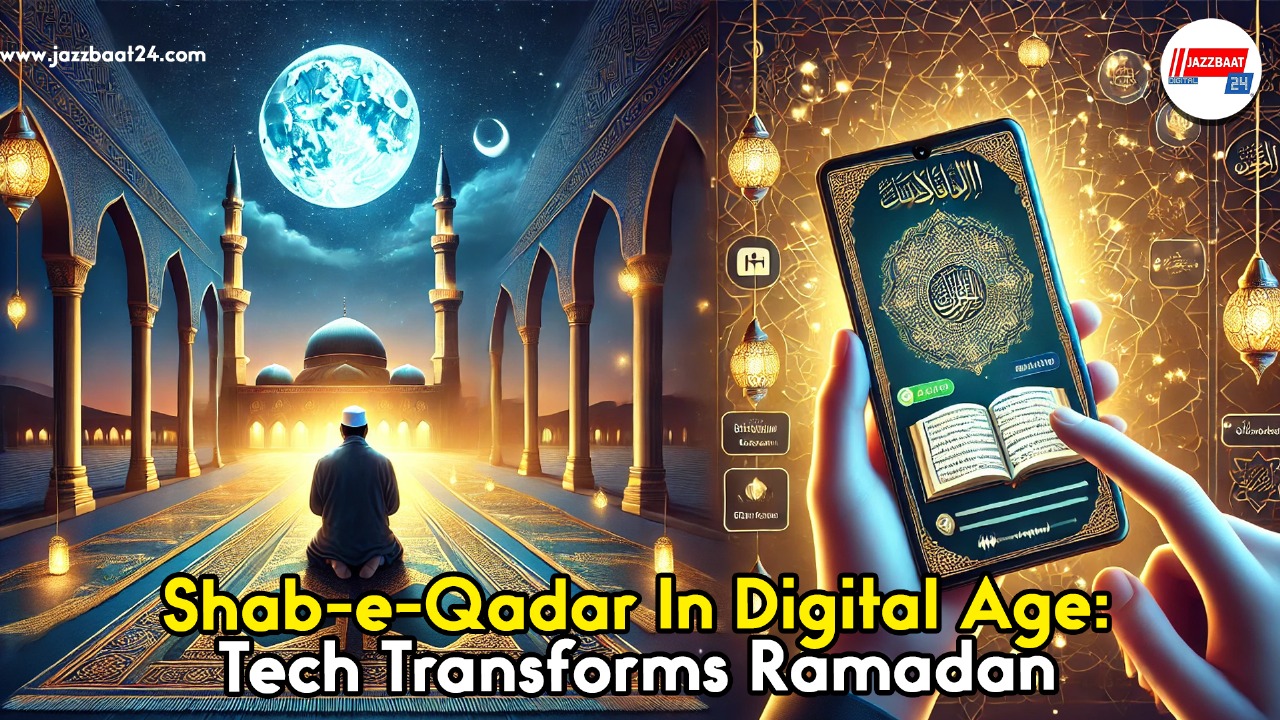
Shab-e-Qadar or Laylat al-Qadr is of unparalleled importance in Islam because it is the night when the Quran was initially revealed unto the Prophet Muhammad (peace be upon him) through the Angel Gabriel. Seen to be a "better than a thousand months" time (Surah Al-Qadr, 97:3), Shab-e-Qadar during the last ten nights of Ramadan has thus far been one of prayer, sanctity, and reflection. Attendance at this sacred night has undergone a complete transformation with technological advancements.
Shab-e-Qadar has always been a time when Muslims have sought forgiveness and the mercy of Allah. The night is marked with special prayer and recitation of the Holy Quran, where the believers offer prayer for hours. The ambiguity of its date leaves the Muslims working overtime during the final ten nights of Ramadan, surrounded by humility and piety.
Technological advancements have, however, started to change the way this holy night has been celebrated in recent years. With the introduction of smartphones and social media, believers can access everything they need at their fingertips. Social media offers live streaming of prayers from mosques within and beyond countries, enabling people who cannot physically go to a mosque to participate virtually. This has enabled the mere connection between Muslims and international communities.
The invention of mobile applications that specialize in Islamic rituals has revolutionized how people prepare for and observe Shab-e-Qadar. Apps that provide Quran recitations, dua (supplications), and prayer reminders have become a precious tool to majority Muslims. Apart from aiding one to worship personally, such programs facilitate communal participation through the options of sharing prayers and ideas with others as well as getting comments.
Besides, social networking sites are now live platforms for experience-sharing about Shab-e-Qadar. People clip and post video clips of their prayers, quote motivational verses of the Quran, and state why this night matters. All this online activity creates a community of believers who are geographically apart but one in faith.
As of the current world scenario, like the COVID-19 pandemic, online meetings are now a major part of religious practice. Lectures and discourse on Shab-e-Qadar are now held online in various mosques with renowned scholars who discuss its importance and how to avail it the most. People are able to make fruitful discussions without being physically together.
Furthermore, charity organizations leverage technology to facilitate acts of charity during this sacred time. Online campaigns are conducted as fundraising campaigns for different causes, such as giving the poor food or education. This use of technology in charity work illustrates how online resources can facilitate greater community involvement during Ramadan.
The availability of information on the Internet today makes it possible for Muslim believers to delve deeper into what Shab-e-Qadar entails. Islamic knowledge websites have blog posts, videos, and podcasts that talk about the religious and historical importance of this holy night. Through presenting varying views on acts of worship and interpretations of Quranic texts, the materials enhance believers' lives.
In addition, online forums offer a platform for individuals to pose questions and get feedback from experienced scholars or fellow believers. This access creates a culture of learning among the Muslim community, where believers can better navigate their religion in a complicated world.
While technology has certainly improved the practice of Shab-e-Qadar, it also brings large concerns about authenticity and participation. The convenience of being able to watch content on the internet may lead some people to be more focused on passive reception than on active participation in devotion. Believers need to find balance between the employment of technology as a means to spiritual development and being committed to such old-fashioned practices as contemplation and prayer.
There is also a threat of online relationship substituting interpersonal relationships among residents in tightly bounded local communities. Virtual gatherings are not evil and should complement and supplement but not substitute in-person meetings that form closer relationships between citizens.
With the challenges of life in the modern age, Shab-e-Qadar is still a powerful potential for spiritual renewal and introspection among Muslims. Combining technology with its celebration has changed how faithful people live out their faith—opening up new paths of worship while creating interconnectivity throughout the world for Muslims.
In the end, embracing these technologies is something that can make our experience on this most sacred of nights better without taking away anything of its holy meaning. As we approach Shab-e-Qadar in 2025, let us not forget that although technology will enable us to connect more with Allah and each other, it is our deeds and intentions that really set us apart as believers on this holy night. By combining tradition and innovation, we can more effectively participate in a more meaningful observance that resonates deeply within our hearts and souls.